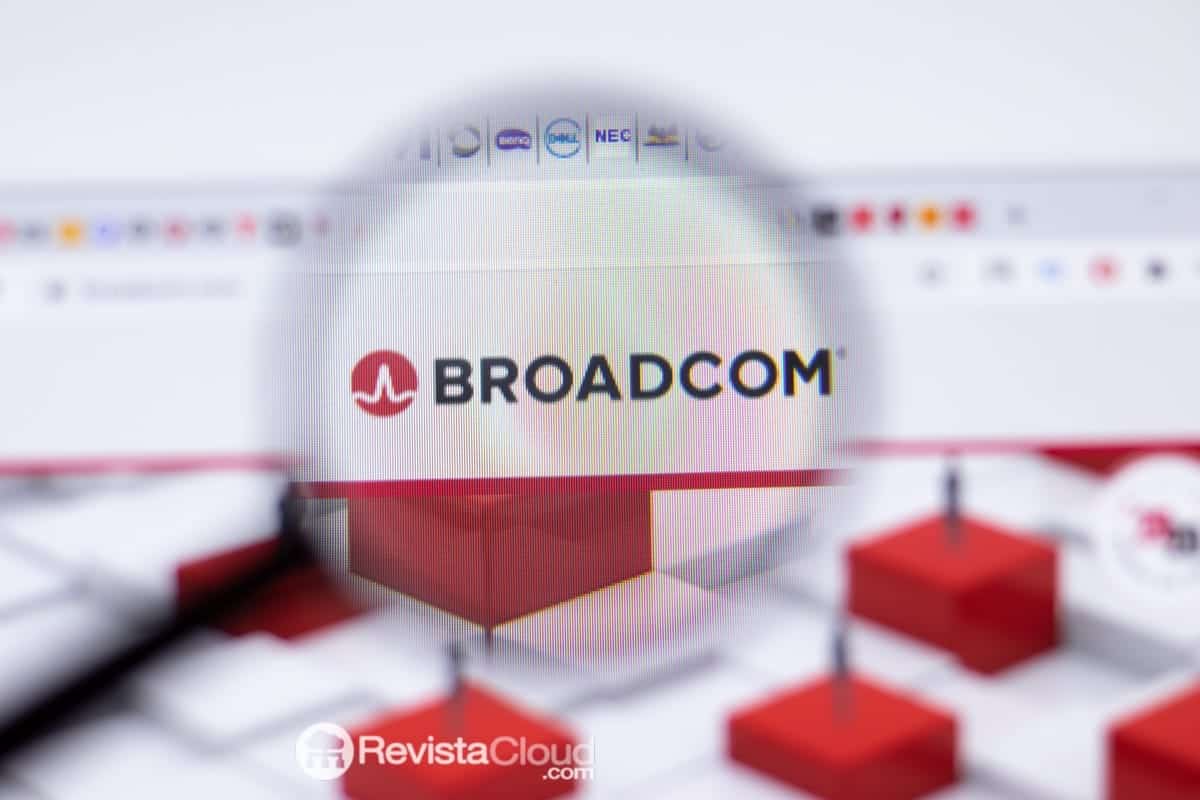Broadcom aims to completely transform how private clouds are built and operated. The company has announced a set of initiatives focused on open hardware, standards-based networks, open source software, and new strategic collaborations designed to make VMware Cloud Foundation (VCF) a more flexible, interoperable platform prepared for modern workloads, including AI, microservices, edge environments, and traditional virtualization.
The new developments aim for a clear goal: enabling customers to use preferred hardware, networking, and open source technologies, reducing costs, simplifying operations, and accelerating innovation in their private clouds — whether on-premises, hosted, or hybrid.
“The momentum behind VCF 9.0 is undeniable. It’s a platform redefining how organizations approach their journey to private cloud,” stated Paul Turner, Chief Product Officer of Broadcom’s VMware Cloud Foundation division. “By fostering an open ecosystem, we empower companies to build modern clouds aligned with their strategic needs.”
Below is a detailed analysis of the three main areas Broadcom has introduced: hardware, open networks, and open source software, along with the collaborations shaping VCF’s next decade.
1. Open Hardware: More flexible ReadyNodes, ODM self-certification, and edge nodes
VCF AI ReadyNodes: Servers ready for AI, certified from day one
Broadcom is expanding its certification program to allow customers to adopt next-generation CPUs, GPUs, and accelerators, with pre-validated servers for AI training and inference.
Supermicro will be one of the first manufacturers to certify an AI ReadyNode system.
Supermicro highlights that this offers a “clear migration path” towards new AI-optimized platforms.
ODM self-certification: More options, lower costs
Original Design Manufacturers (ODMs) will be able to self-certify ReadyNodes through the Technology Alliance Program (TAP), ensuring full compatibility with VCF and its lifecycle.
This:
- Expands available catalog options.
- Reduces reliance on third parties.
- Lowers total cost of ownership (TCO).
OVHcloud has already confirmed it will leverage this pathway to speed up the launch of new VCF-based services.
New rugged edge nodes
Edge modernization is also underway. VCF will support optimized nodes for industrial edge, defense, retail, and remote environments, featuring compact, durable servers ideal for deployment in factories, hospitals, or stores.
SNUC will certify its extremeEDGE servers through self-validation, enabling AI and VCF deployment in locations where private clouds traditionally made little sense due to size or cost.
2. Open Networks: EVPN, BGP, and SONiC to simplify and reduce private cloud costs
Broadcom’s network strategy seeks to break proprietary barriers and promote multivendor interoperability.
Unification with EVPN and BGP
VCF is moving towards a standards-based EVPN + BGP architecture, which will enable:
- True interoperability with external vendors.
- Simpler, more predictable operations.
- Greater flexibility in hybrid and multicloud environments.
- Protection at the VPC level and integrated visibility.
This aligns VCF with the Cisco Nexus One architecture, which employs VXLAN EVPN as the control and data plane.
Cisco emphasizes a “shared commitment to open standards,” giving customers the freedom to “connect and scale both traditional and AI workloads.”
SONiC: Cost-effective switches with cloud-native control
NSX, the foundation of VCF networking, now supports SONiC, an open source network operating system created by Microsoft and now maintained by the Linux Foundation.
SONiC offers:
- Lower hardware costs (multi-vendor switches).
- Cloud-native operations with APIs and containers.
- Downtime-free upgrades.
- More control and automation for DevOps and NetOps teams.
For many companies, this means reducing vendor lock-in and adopting a network resembling that of hyperscalers.
3. Open Source Software and CNCF Leadership
Broadcom maintains a significant presence in the Cloud Native Computing Foundation (CNCF) and continues to contribute to projects such as:
- Antrea
- Cluster API
- containerd
- Contour
- etcd
- Harbor
The CNCF recently launched the Certified Kubernetes AI Conformance program, certifying consistent execution of AI workloads on Kubernetes.
vSphere Kubernetes Service (VKS) is now AI Conformant
This achievement ensures that AI workloads run on VKS adhere to CNCF standards, enabling companies to:
- Reduce interoperability issues.
- Avoid proprietary deployments.
- Ensure scalable, production-ready AI environments.
According to the Linux Foundation, Broadcom’s ongoing involvement “keeps Kubernetes neutral and production-ready at scale, especially for emerging AI workloads.”
4. New Strategic Collaborations: Cisco, Intel, OVHcloud, SNUC, and Supermicro
The VCF ecosystem update is complemented by strengthened partnerships:
- Cisco: interoperability with Nexus One enabling a standardized EVPN network architecture.
- Intel: acceleration of VCF 9.0 on Xeon 6 processors, offering higher consolidation ratios and cost optimization, critical for AI adoption.
- Supermicro: first certified AI ReadyNodes.
- OVHcloud: self-certification of ReadyNodes and faster deployment of competitive private clouds.
- SNUC: extremeEDGE servers for AI and industrial edge applications.
5. Why Do These Moves Matter?
The message is clear: VCF aims to be the universal platform for private clouds, capable of supporting:
- Traditional enterprise applications.
- Containers and microservices.
- AI workloads and GPU inference.
- Industrial and remote edge environments.
And it does so without locking customers into a single hardware, network, or software provider.
Through this strategy, Broadcom is building a more open ecosystem than the traditional VMware era, reversing course—a change many clients demanded after the acquisition.
Frequently Asked Questions
What are VCF AI ReadyNodes and why are they important?
They are pre-certified servers for AI training and inference, validated by Broadcom and OEM/ODM partners. They guarantee compatibility, performance, and lifecycle alignment with VCF.
What do EVPN and BGP bring to VCF networking?
They enable an open, standards-based, multivendor network architecture that reduces complexity and costs compared to proprietary solutions.
What does it mean for VKS to be Certified Kubernetes AI Conformant?
It indicates AI workloads running on VKS meet CNCF standards, ensuring interoperability, stability, and readiness for productive AI deployment.
What are the benefits of ODM self-certification?
More hardware options, less dependence on OEMs, faster release cycles, and reduced total cost of ownership in VCF-based private clouds.
Sources
Broadcom — Broadcom Advances Open Ecosystem for VMware Cloud Foundation (official press release, 12/11/2025).

